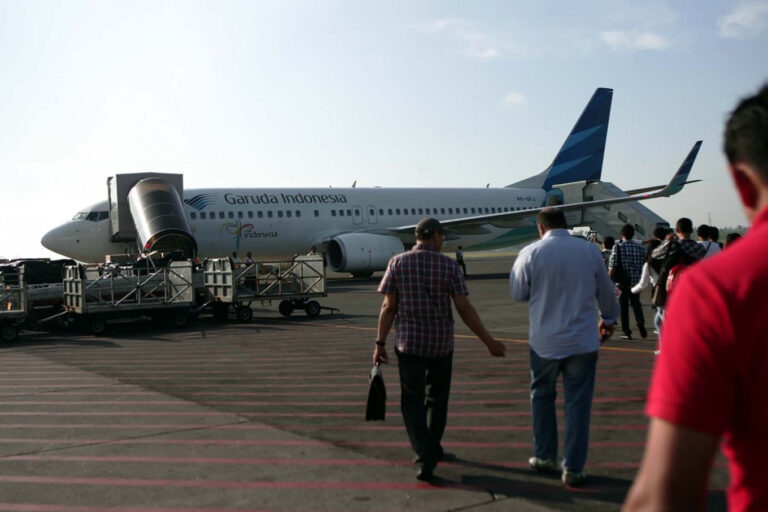The Indonesian government is in the process of passing regulations to establish the Indonesia Tourism Fund (ITF). This fund will be used to support a variety of large-scale tourism events that can create synergies, such as music concerts. One way to raise money for the fund is to levy tourism fees on airfares, which is likely to increase ticket prices. The plan sparked opposition from consumer rights advocates as well as business stakeholders in Indonesia’s tourism industry, including the country’s aviation industry.
The Ministry of Tourism and Creative Economy has drafted a presidential regulation that will serve as the legal basis for the Indonesia Tourism Fund (ITF). Angara Hayun Anujpurana, Director of Access to Finance at the Ministry of Tourism and Creative Economy, explained that adding tourism fees to foreign entry visa fees could be one potential source of funding for the ITF. Other funding options available to the ITF include the national budget, local government budgets, investment income, and grants accumulated by the Indonesian Environmental Fund (BPDLH).
A letter from the Ministry of Maritime Affairs and Investment Coordination dated April 20, 2024, revealed plans to collect tourism fees from airfares to fund the ITF. The letter invited the Indonesian Air Transport Association (INACA) to a meeting on April 24, 2024 to discuss the plan, but no date has been set at this time. Alvin Lee, a member of the INACA Expert Council, said INACA was not aware of any plans for such a tourism fee and there was no discussion on the issue before receiving the invitation to the meeting.
Maulana Yusran, secretary general of the Indonesian Hotel and Restaurant Association (PHRI), warned that the rules will have a negative impact on the tourism industry, which is still struggling to recover from the effects of the COVID-19 pandemic. INACA Chairman Denon Prawiratmaja said 70% of the airline industry’s operating costs are suffering from the depreciation of the rupiah against the US dollar, and airlines are still recovering from the pandemic. It added that the proposed fees risk accelerating the airline’s financial decline while it struggles.
Mr Lee, who is also chairman of the Indonesia Air Service Users Association (APJAPI), cited International Air Transport Association (IATA) rules that prohibit additional costs to airfares that do not provide any benefit to passengers other than service fees. He questioned whether the fare would benefit passengers. , travel insurance, and value added tax (VAT). The Indonesian Consumers’ Association (YLKI) called on the government to reconsider the proposed regulations as it could contradict the ITF’s own objective of improving tourism to Indonesia.
The ITF will manage Rp2 trillion (US$123.65 million) in funds at the start-up stage and aims to become a source of funding for organizing major tourism events in Indonesia. The fund will be operated similarly to the Ministry of Finance’s Indonesian Education Endowment Fund (LPDP), but with the participation of all stakeholders in the country’s tourism sector. In response to reports about plans to apply tourism fees to airfares to fund the ITF, Minister of Tourism and Creative Economy Sandiaga Uno insisted that the additional fees would not be a burden on the public.

every Thursday
Whether you want to expand your horizons or keep up with the latest developments, Viewpoint is the resource of choice for those looking to tackle the issues that matter most.
Thank you for subscribing to our newsletter!
Please check your email to subscribe to our newsletter.
View more newsletters
It is unlikely that tourism fees can effectively achieve the ITF’s goals. Introducing this fee without adjusting Indonesia’s airfare cap would have a direct impact on the airline industry’s profit margins. However, even if this fee were enacted in parallel with air fare cap adjustments, it could indirectly reduce airline profitability due to reduced demand. Either way, domestic tourism will suffer.
what we heard
Industry sources say the government is working to raise funds for tourism development through the Ministry of Maritime Affairs and Investment Coordination. The recent policy of imposing a tourism fee on the purchase of airline tickets is included in these fundraising efforts.
The official said the idea of imposing a tourism fee would be implemented quietly before public reaction begins to accumulate. However, they believe that since the plan was initiated by Minister Luhut, it is likely to continue regardless of the public’s reaction. Regarding what would be necessary to reverse the tourism fee policy, the official said, “Unless there is significant opposition from the public and the airline industry.”
Meanwhile, the official also mentioned the government’s various approaches to attracting tourists. For example, it is trying to have more concerts in Indonesia featuring international artists. The government is also targeting tourists with higher spending potential. “These include [tourists] These are the ones who prioritize the sustainability aspect,” the source added.
“The international banking network is expected to be useful in introducing domestic tourist destinations,” the official said. Tourism destinations that the government is focusing on include Lake Toba and Komodo Island.
Disclaimer
This content is brought to you by Tenggara Strategics in collaboration with The Jakarta Post to provide comprehensive, authoritative, and up-to-date analysis of Indonesia’s political and business landscape. Visit the latest edition of Tenggar Backgrounder and read the articles listed below.
politics
Nas Democratic Party, PKB join Prabowo, await reward PDI-P and PKS form unlikely alliance in opposition KPK shoots itself in the foot with infighting Dynasty building and nepotism continue to plague Indonesian politics
business and economy
Local investors join Nusantara Independence Day celebrations Jokowi offers IKN investment opportunity to Singapore Rapid Rupiah depreciation prompts BI to raise policy interest rate


